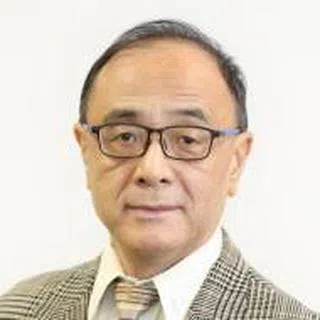Deal or no deal: Trump’s China policy in a second term
US President-elect Donald Trump is set to be sworn in for his second term on 20 January 2025, and all eyes are on what his China policy will be. Can he drop his businessman’s mindset, or turn it towards a win-win situation? EAI senior research fellow Lance Gore explores the issue.
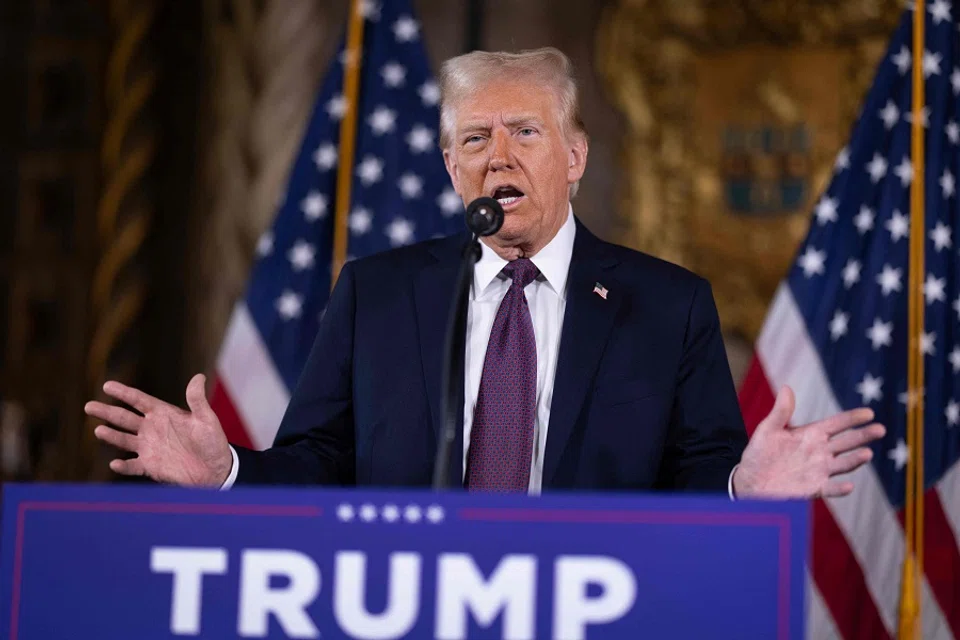
In the 2024 US elections, Donald Trump emerged as the 47th US president. If his “surprise” win in 2016 is still seen as an anomaly by the mainstream media and elite society, his victory this time surely signals his entry into the mainstream.
In China’s self-media, fewer people are calling him by the nickname Chuan Jianguo (川建国, lit. Trump the nation-builder). (Editor’s note: Trump said during his first presidential term that “Korea actually used to be a part of China”, which led to him being jokingly credited by Chinese netizens with helping in China’s “nation-building”.)
Trump is currently at his peak, a dominant President rarely seen in US history. His Republican Party will control both houses of Congress, while conservative justices hold an absolute majority of 6 to 3 on the Supreme Court. Unlike in 2016, this time Trump swept seven swing states and won the popular vote, while many young people and minorities switched to voting for him.
Time Magazine named Trump Person of the Year, and even changed its stance to essentially say that he could change the world. The Republican Party is basically Trump’s party now. The Democrats, on the other hand, can produce no competitive alternative platform; they have a long and difficult process of soul-searching to go through before they can reconnect and re-engage with grassroots society.
Trump’s style and ways
There has always been a powerful anti-China current in the US, not always based on national interests, but ideology — a deep-rooted, religion-based mindset among the American people of “us versus them” and “good versus evil”. But unlike the traditional ideology-driven Democratic and Republican parties, Trump is a pragmatist, an unconventional politician that the American people need amid difficulties and a sense of crisis.
Trump inviting Chinese President Xi Jinping to his presidential inauguration ceremony given near-hysterical bipartisan anti-China sentiments is unimaginable to Democrats and Republicans alike. Only Trump could ignore this.
Trump’s style makes it hard for the mainstream media and elite society to take him seriously. Former President Barack Obama said confidently before Hillary Clinton lost in the 2016 presidential election that the American people would never elect a man like Trump to the presidency.
Commentaries in American media said Trump related and got along better with dictators than with leaders of democratic allies. They accused him of abandoning America’s fundamental values and beliefs; of destroying the international order, US national credibility and traditional friendships that the US has worked long and hard to build up on the basis of liberalist principles and standards; and of making himself the laughing stock of the world.
In contrast to Obama, who hung on to the vision of the US as a “city on a hill” or a beacon to the world, taking American values and beliefs to be the supreme interests of his country, Trump haggles over every bit of commercial interest.
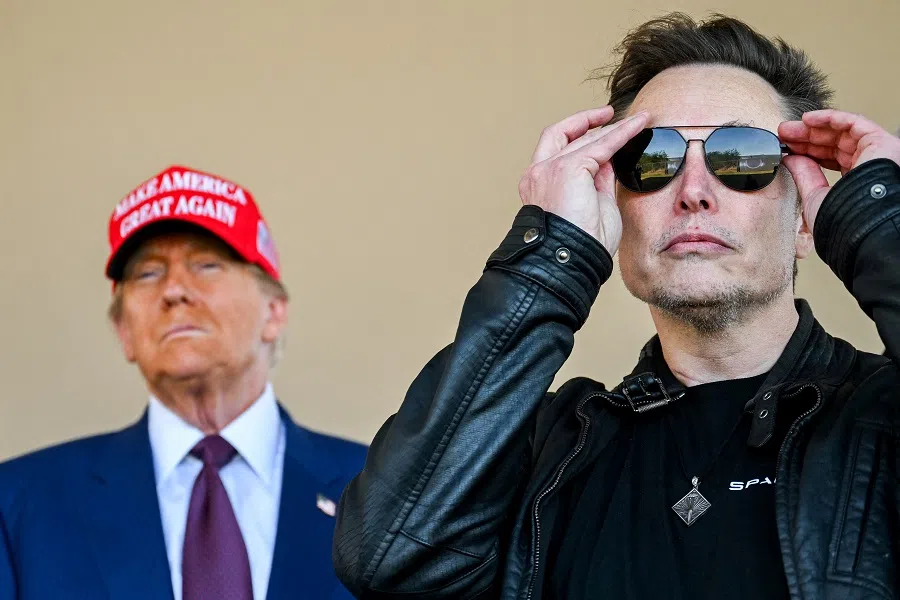
When former House Speaker Nancy Pelosi visited Taiwan in 2022, it was a declaration of ideological solidarity with democratic Taiwan, running a tremendous risk of possibly leading to armed conflict between two superpowers. To Trump, this was a foolish move that would stir up trouble unnecessarily. Similarly, Trump inviting Chinese President Xi Jinping to his presidential inauguration ceremony given near-hysterical bipartisan anti-China sentiments is unimaginable to Democrats and Republicans alike. Only Trump could ignore this.
Exciting times ahead
Trump was the one who initiated the trade war, but it is also him alone who has always looked at it from a businessman’s point of view. He could start a full-scale war with no regard for friend or foe, and decide whether he gets a win or loss solely by calculating sales figures. Sometimes, he is even tougher on US allies, describing them as treating the US worse than its enemies or China.
At the end of the day, the American electorate chose Trump not because he was likeable or admirable, but because they thought he was most likely to change the current longstanding popular discontent. His re-election after four years of “high-minded” Biden shows this perception has become stronger. It can be expected that once the opposition and general public gradually get used to his crude and vulgar style, they will become more accepting of him.
In China, many are wary of how Trump’s cabinet nominees include a number of aggressively anti-China figures, especially Senator Marco Rubio, the nominee for secretary of state on whom China has imposed sanctions. Notably, however, Rubio has argued in a Senate floor speech that the biggest challenge facing the US is not China, but rather a range of domestic issues, as well as major reforms that are needed. According to him, America can only be beaten by itself.
And it is not just the US — in other Western countries, politics is heading in the same direction: a return to rational realism and de-ideologisation. It seems that Trumpism will dominate American politics for quite a long time to come.
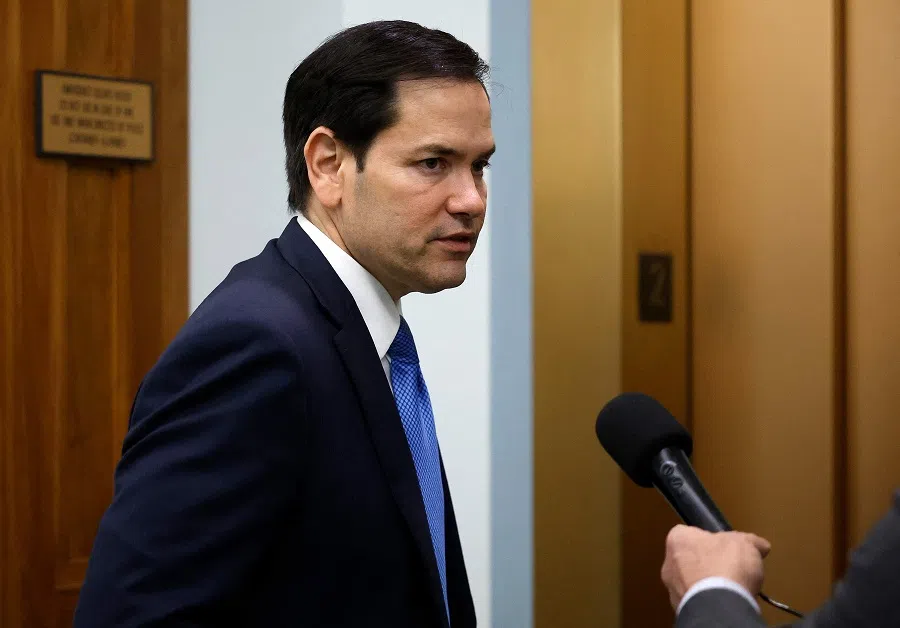
His analysis of domestic issues is highly consistent with Trump’s. Like-mindedness in this regard was probably the main reason why Trump picked him, not his anti-China stance. Rubio will likely be a Secretary of State who can marry America’s China policy with domestic reforms, while also creating difficulties for China.
And let’s not forget that Elon Musk is also a heavyweight in Trump’s inner circle, as well as someone who can create endless possibilities. And it is not just the US — in other Western countries, politics is heading in the same direction: a return to rational realism and de-ideologisation. It seems that Trumpism will dominate American politics for quite a long time to come.
Unseen in a hundred years of US political history
Trump is set to be an unorthodox POTUS, of a type not seen in a hundred years of US political history. His rise to power has broken practically every convention in US politics. He shouts “Make America Great Again” (MAGA), yet he himself is the most un-American of presidents. He is not bound at all by America’s founding ideals and values, nor its moral standards or code of “politically correct” conduct, and is more likely than traditional American politicians to make out-of-the-box decisions.
Trump is not one to be left on his own; now that he holds all the power, he is bound to do something with it. Since he was the one who launched the trade war with China, pushing bilateral relations onto the track of antagonism, he is now most qualified and able to open up more room for these relations amid bipartisan anti-China sentiments, much like how anti-communist hardliner Richard Nixon became the first US president to visit Beijing after WWII.
There are signs that Trump is likely to adopt a policy towards China that will actually achieve something, rather than simply being oppositional. He claims to “love China”, and to have a good personal relationship with Xi Jinping, asserting that “China and the United States can together solve all of the problems of the world”, which shows that Trump does not care about differences in ideology and social systems.
In previous interviews with journalists, he showed a deep understanding of China’s development. His praises for Huawei — which he had gone to extreme lengths to suppress during his first term of office, even to the point of declaring a national emergency — were also accurate and on point.
He will suppress China like how he suppresses his competitors in the business arena, all for gains, and not for the sake of fighting against some “axis of evil”.
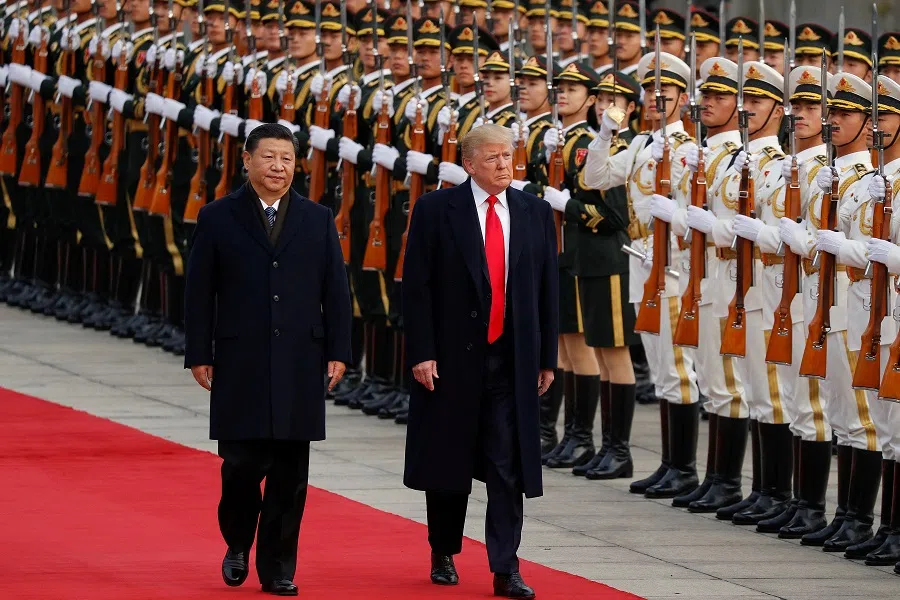
Trump’s MAGA platform dictates that he will do whatever it takes to suppress China, but without the mindset of typical US politicians of taking the moral high ground or black-and-white, love-’em-or-hate-’em thinking. He will suppress China like how he suppresses his competitors in the business arena, all for gains, and not for the sake of fighting against some “axis of evil”.
On the Taiwan issue, he is most interested in selling arms rather than sending troops. When asked by a reporter whether he would be willing to use military force to defend Taiwan, he replied slyly that Xi “knows I’m [expletive] crazy”.
Not politics but common sense
Trump does not fight for the sake of politics, but — in his own words — to “bring common sense back” to America, the common sense that has been rendered unrecognisable by partisan struggles, which is the main reason why he is popular with voters. Trump has common sense, just no moral bottom line or clear line between right and wrong. He holds grudges and does not necessarily feel gratitude, and fits the ancient Chinese saying that “there are no merchants who are not treacherous” (无商不奸).
Trump likes grandiosity and once said on TV that only Jesus Christ is more famous than he is. This would have made any traditional politician an oddity, yet it has enabled him to fish in troubled waters and push for change, especially when people actually take him seriously.
Yes, Trump wants to make America great again and be number one forever. To that end, he would not mind if China’s economy ran into trouble or even capsized. Even so, ideology and values hardly factor in his calculations. He does not care for any of it, unlike the senior advisers and cabinet members, US congressmen, think tanks and interest groups around him, who are veritably setting up a new Cold War, all because they really do not like China, whose rise is totally at odds with their values and ideals. President Trump is not turned off by China — in fact, he envies its accomplishments.
Trump’s unconventional approach reflects the inherent differences between business and politics, as well as his personal drive for recognition and a prominent place in history. For China, a US president who is not bound by ideology, who does not care about the moral distinction between right and wrong, is easier to deal with, even if he may sometimes seem more unreasonable. This drive for self-preservation and dominance is a common feature of great power politics.
... while the CCP has been pushing hard for de-ideologisation and the “democratisation of international relations” in international politics, the “theory” and “system” of domestic politics in China are still structured around ideology.
CCP’s double standard on ideology and future direction
If Xi accepts the invitation to Trump’s inauguration, it might be a major turning point in US-China relations, or perhaps it would not change much; either way, playing the personal relations card and laying the groundwork for future exchanges would be something gained.
Given bipartisan anti-communist sentiments, and how perceptions of the Chinese Communist Party (CCP) have been hitting record lows in American opinion polls, turning up in person would be risky and uncertain, and would call for excellent adaptability. Among previous CCP leaders, probably only Zhou Enlai could handle such a complex situation.
De-ideologisation is key to smoothing bilateral relations. The old politics of ideological lines is losing ground in the US and elsewhere. Domestically, the “White Left” is becoming increasingly abhorrent; globally, the influence of Western ideology is waning, as multi-polar, multi-structured international politics is taking shape. However, while the CCP has been pushing hard for de-ideologisation and the “democratisation of international relations” in international politics, the “theory” and “system” of domestic politics in China are still structured around ideology.
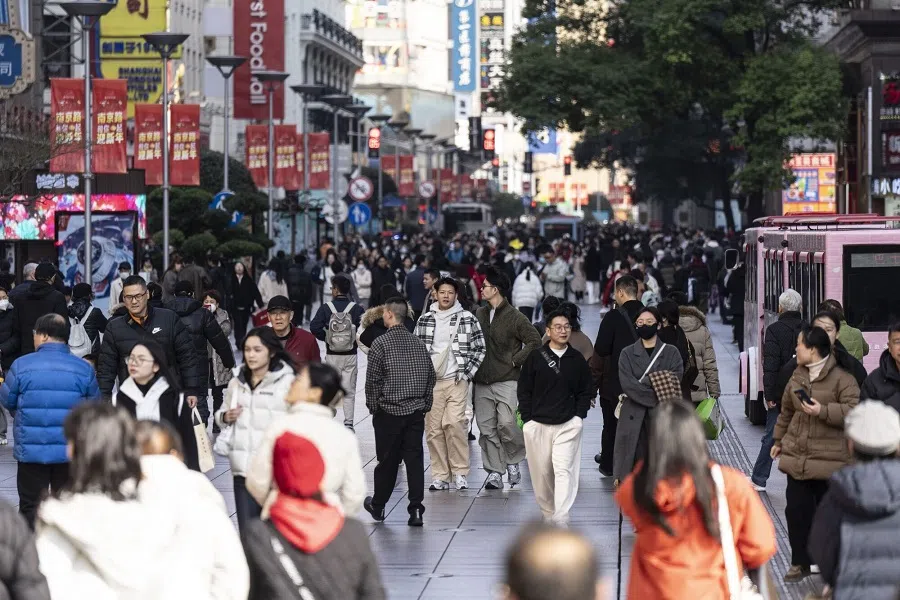
Persistent and worsening corruption as well as the enormous economic and social difficulties that China is currently experiencing shows that there is no basis for the CCP’s so-called “confidence” in its “theory” and “system”. The Chinese system does have its strengths, but those can quickly turn into weaknesses once ideological orthodoxy is emphasised.
De-ideologisation should therefore also be part of the agenda for Chinese politics in line with general international trends, otherwise the old system and old ideology will not only fail to support “national rejuvenation”, but also provide a pretext for the US to suppress China, while having no real appeal in the international arena.
The bipartisan — even society-wide — anti-China sentiment in the US is only weakly based on interests, but is more of a cognitive and ideological consensus. It is old politics in a new guise, which does not stand up to the questioning and test of interests. The main motive for Western politicians playing the ideology card is to put the CCP on the back foot. The US is not worried about the present CCP turning the world communist.
Although China has not moved towards democratic liberalism, some aspects of its economy are more capitalist than capitalism, embodying state capitalism that is more competitive. In reality, Biden’s Democratic administration is already exercising a Chinese-style industrial policy. Trump’s mercantile pragmatism and populism is no less driven by a desire to learn from China, which it does with fewer scruples and psychological barriers.
In an article published in Lianhe Zaobao on 3 December 2018, I argued that Trump is the one most likely to be free from the influences of traditional politics, and that such a president will be hard to come by again. But Trump is coming back, and China should seize this opportunity to make a good effort to adjust its ties with the US, so as to bring about a balanced and sustainable China-US relationship.
Whether we get “Trump the nation-builder” or “Biden the nation-builder”, the primary impact will be on the external environment. China’s own development ultimately depends on its internal efforts: deepening reforms and resolving challenges with pragmatism and wisdom.
This article was first published in Lianhe Zaobao as “2025“川建国”凯旋”.
